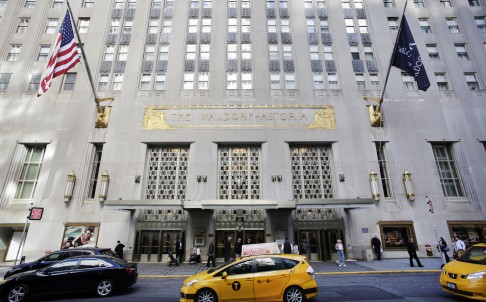Outbound real estate investment from mainland China topped US$10 billion last year and is set to cap five years of rapid growth by hitting US$14 billion this year, according to international property consultant CBRE.
In its latest research report – The Expanding Role of Chinese Capital in Global Real Estate Markets – CBRE said the outbound investment from the mainland had experienced a compound annual growth rate (CAGR) of about 72 per cent over the past four years, with investors looking to diversify a rapidly growing pool of domestic wealth, while lifestyle and business goals also played a significant role in driving offshore investment.
CBRE China research head Frank Chen said the past two years had seen “explosive growth” in purchases of offshore real estate by mainland investors, including individuals, corporations and institutions.
Britain,
the United States and
Australia were the top three overseas markets for commercial real estate investment by mainlanders last year.
CBRE’s Global Investor Intentions Survey 2015 found that London was the preferred city for investment among global investors seeking to purchase commercial real estate.
JLL, another property consultant, has also highlighted grown mainland investment overseas, predicting that Chinese capital will continue to move overseas, with investors looking in particular at global gateway cities such as London, New York, Sydney and San Francisco.
JLL estimates that mainland China deployed US$17 billion in commercial real estate investment overseas last year, compared to US$14 billion in 2013, and predicts a total of US$20 billion this year.
CBRE said its estimates were based on figures that only included direct investment into commercial property, and investments by red-chip companies, and not investment in development sites or individual investor purchases of residential property.
It said mainland investors would increasingly encounter intense competition as they sought out new opportunities.
Many mainland investors, with limited experience of investing offshore, would also face challenges when navigating unfamiliar markets and regulatory landscapes.
“Regulators in offshore markets may roll out new regulatory restrictions and requirements for foreign purchasers of real estate, as well as implement new policy, complicating the landscape for all market participants,” the report said.
The strong performance of global real estate markets in recent years would invariably be followed by market downturns that would vary in degree across regions and property types. Mainland investors would need to be prepared for such challenges as they continued to build their global portfolios, the report said.
